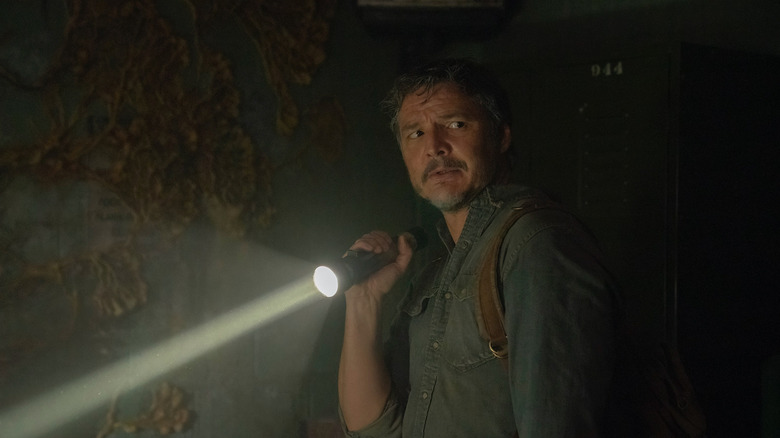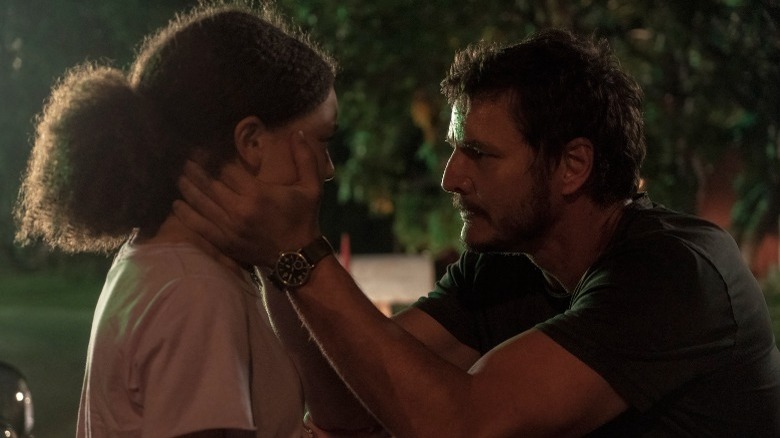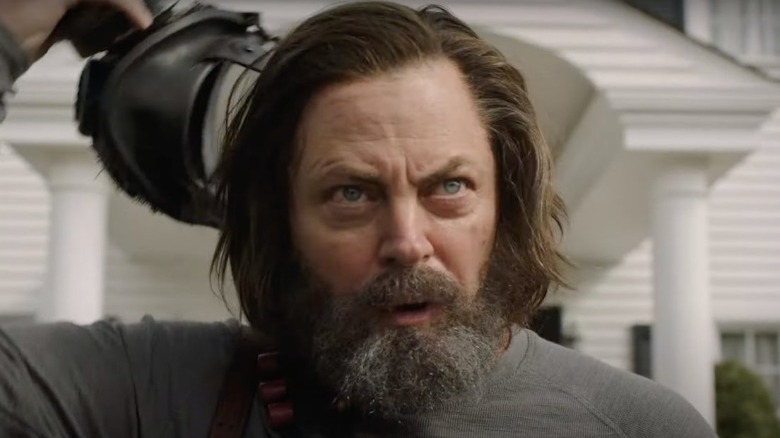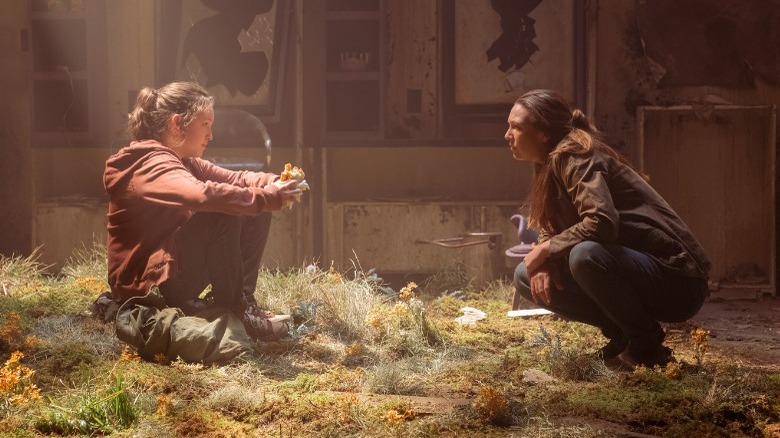The Last Of Us Review: A Thrilling, Character-Driven Achievement For Game Fans And Newcomers Alike
Over the years, plenty of video games have been considered "unadaptable," but "The Last of Us" may be the rare game that almost seems too adaptable. After all, the 2013 Naughty Dog masterpiece is cinematic, character-driven, and its combined cut scenes are already the length of a limited series. It's an apocalypse saga that resonates deeply not because of massive set pieces or unique mythology (though it has those too), but because of quiet moments that take place between two talented actors. The game brought a movie-like quality to its medium like never before, and now it's finally making the move to the small screen with HBO's "The Last of Us." Luckily, the compelling and fantastically-acted nine-episode adaptation rises to meet the challenge.
Neil Druckmann and Craig Mazin's adaptation of "The Last of Us" (which is based on the game written by Druckmann) hews closely to the original saga's plot and structure. It takes place twenty years into an apocalypse brought on by a fast-growing fungal infection that turns humans into feral, zombie-like monsters. But the show, like the series, is less interested in the whole world and more interested in two lost souls trying to survive it. It follows a stoic and emotionally detached smuggler named Joel (Pedro Pascal) as he attempts to move a "package" that turns out to be a teenager — Ellie (Bella Ramsey). Ellie is at once witty, naive, and stubborn, and she also has a secret that makes her invaluable to a group of rebels known as the Fireflies.
Pascal and Ramsey carry a heavy story with ease
As Joel and Ellie head west, they build a tender and tentative bond, and it's that thread of hope that sustains them — and us — in a world that's otherwise unrelentingly bleak. "The Last of Us" strikes a delicate tone, balancing its joys with its moments of devastation, and it succeeds in large part thanks to a tremendous cast. Pascal puts in what may be the best work of his career as Joel, a man who staunchly refuses to be a hero but can't help but be a protector nonetheless. The actor finds countless different shades of nuance in a character who's often purposefully stone-faced and plays his rare moments of vulnerability just as well. As Ellie, who was born post-apocalypse and hasn't seen much of the outside world, Ramsey stands out, too. The actor balances a cool facade with the character's child-like energy and awe, and both performers shed their characters' walls beautifully as the series unfolds.
"The Last of Us" starts off on shaky footing, literally, with a pilot episode that's the weakest of the bunch. "Beanpole" filmmaker Kantemir Balagov was originally on board to direct, and "Breaking Bad" filmmaker Johan Renck before him, but series co-creator and writer Mazin ended up with the credit on the final product. The result of the changeover isn't bad, but it's less cohesive and striking than the rest of the show, with an extraneous expository cold open and shaky handheld footage that lessens the impact of our first glimpse of a world that's both blooming and decaying. Still, the pilot manages to get in a good gut punch with a pivotal narrative epilogue anchored by Pascal and Nico Parker, and the series as a whole recovers quickly from these minor, early stumbles.
The show features a standalone high point
By the time it reaches its brilliant third episode, "The Last of Us" is in full rip-your-heart-out mode. Fans of the video game will no doubt worry about precious details that might get lost in translation, but this hour, written by Mazin and helmed by "It's a Sin" filmmaker Peter Hoar, gains everything in translation. The chapter re-imagines a subplot of the original game entirely, and the result is a crushingly beautiful standalone story that doubles as a pure embodiment of the game's most poignant themes.
Episode three is an achievement on every level, uniting fans and newcomers alike in an unexpected, emotionally intimate experience. Guest stars Nick Offerman and Murray Bartlett give staggeringly great performances that will surely stick with viewers long after the show has moved on. The entire supporting actor slate for the series' first season is impressive, but in the weeks since I first screened "The Last of Us," I've returned to this episode more than any other, bowled over again and again by its performances, its visual symbolism, and its sensitively told story.
Small qualms aside, they really pulled this thing off
"The Last of Us" is a survival story that cares less about how we survive than why, but it still manages to pull off some grisly action to match its source material. The show's landscape is sometimes a bit less picture-perfect than the award-winning graphics of its counterpart, but what it lacks on the horizon line it makes up for in close-up, with harrowing and unique creature designs. In place of traditional zombies, infected bodies in "The Last of Us" bloom like mushrooms, resulting in misshapen, spongy-looking creatures called Clickers. The largely practical Clicker designs are undeniably awesome, even if the biggest threat Joel and Ellie face often aren't monsters, but other people.
Druckmann's story is perhaps best known for its ending, an indelible and deeply complicated conclusion that's carried by the same two characters who led us this far. In its later episodes, "The Last of Us" seems to be tumbling quickly towards that ending, and its brisk pacing seems designed to leave viewers little time to process its most traumatic moments. In the end, though, Pascal and Ramsey put in excellent, soul-baring work that makes it hard to see this chapter of "The Last of Us" go. But the quality that makes us not want to leave them is the same one that makes the ending go off without a hitch — as jarring in live-action as it was on HBO, if a shade more understated.
Breathe a sigh of relief: "The Last of Us" is very, very good.
"The Last of Us" debuts on January 15 on HBO and will be available to stream in 4K on HBO Max.



